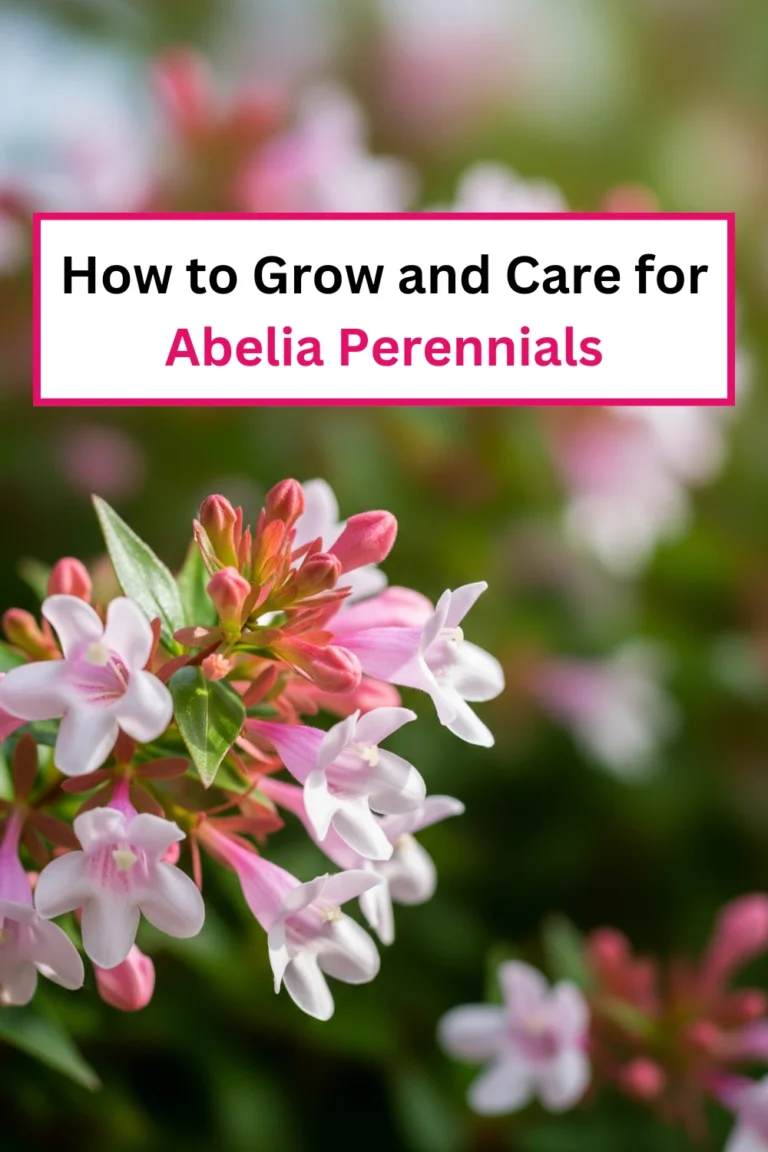When it comes to creating a healthy and serene bedroom environment, indoor plants are one of the simplest yet most effective solutions. The right plants not only beautify your space but also improve air quality, reduce stress, and even help you sleep better. In this guide, we’ll explore the 6 best bedroom plants for your health backed by science, easy to care for, and perfect for enhancing your sleep sanctuary.

Why Bedroom Plants Are Good for Your Health
Before diving into the top picks, let’s explore the health benefits of keeping plants in your bedroom:
1. Air Purification
Many indoor plants naturally filter harmful toxins from the air. According to NASA’s Clean Air Study, certain plants can remove pollutants like formaldehyde, benzene, and trichloroethylene chemicals often found in household furniture, paint, and cleaning products.
2. Increased Oxygen Levels
Plants release oxygen through photosynthesis during the day, and some, like snake plants, even produce oxygen at night helping you breathe better while you sleep.
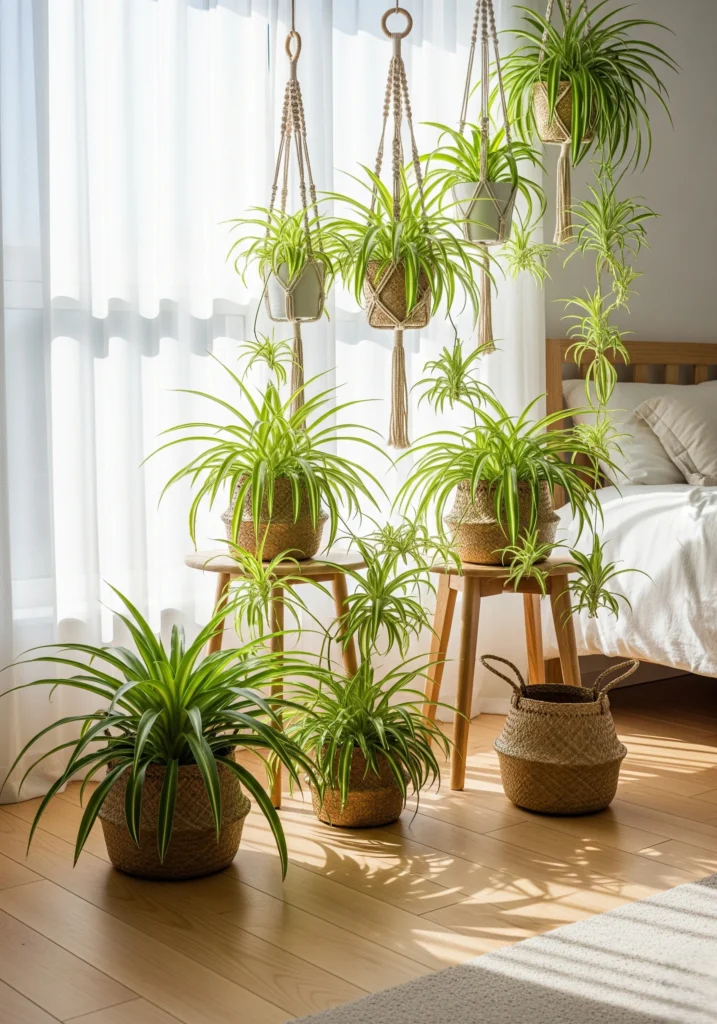
3. Reduced Stress & Anxiety
The calming effect of greenery is scientifically proven to lower stress hormone levels and promote relaxation perfect for winding down before bed.
4. Better Sleep Quality
Some plants, such as lavender and jasmine, release natural scents that promote relaxation, helping you fall asleep faster and enjoy deeper sleep.
5. Natural Humidifiers
Certain plants increase indoor humidity by releasing moisture through transpiration, which can ease dry skin, throat irritation, and respiratory issues.
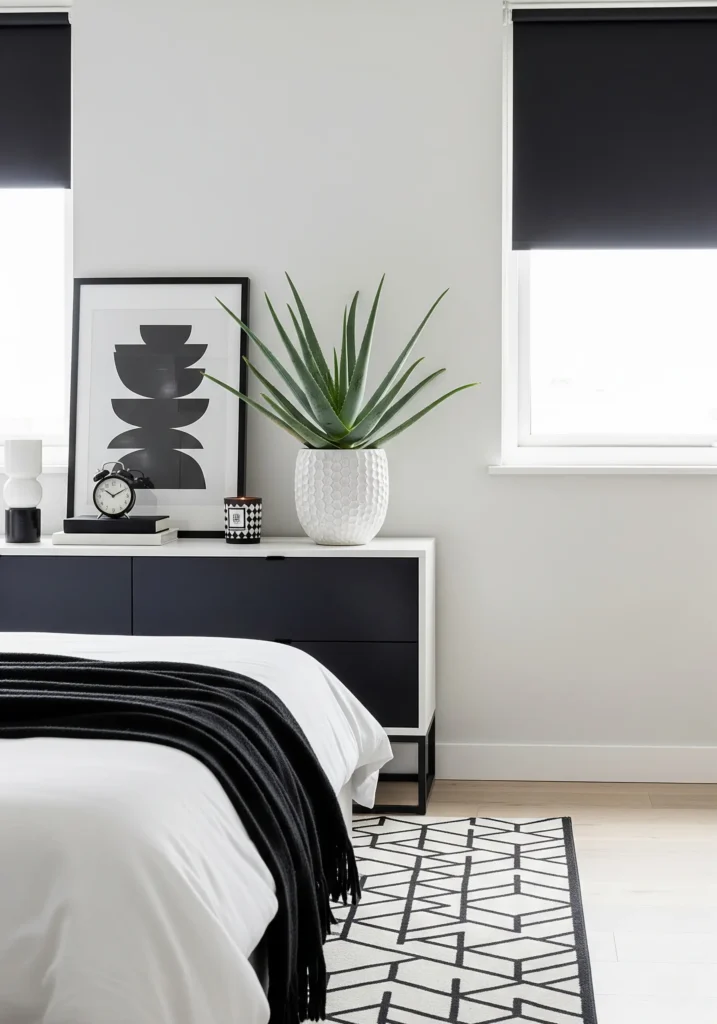
The 6 Best Bedroom Plants for Your Health
1. Snake Plant (Sansevieria trifasciata)
Also known as the Mother-in-Law’s Tongue, the snake plant is a top choice for bedrooms because of its low maintenance and nighttime oxygen production.
Health Benefits:
- Filters toxins such as benzene, formaldehyde, and xylene.
- Produces oxygen at night, improving air quality while you sleep.
- Extremely hardy and drought-tolerant.
Care Tips:
- Light: Thrives in low to bright indirect light.
- Water: Once every 2–3 weeks; allow soil to dry completely.
- Temperature: Prefers warm conditions (15–30°C / 59–86°F).
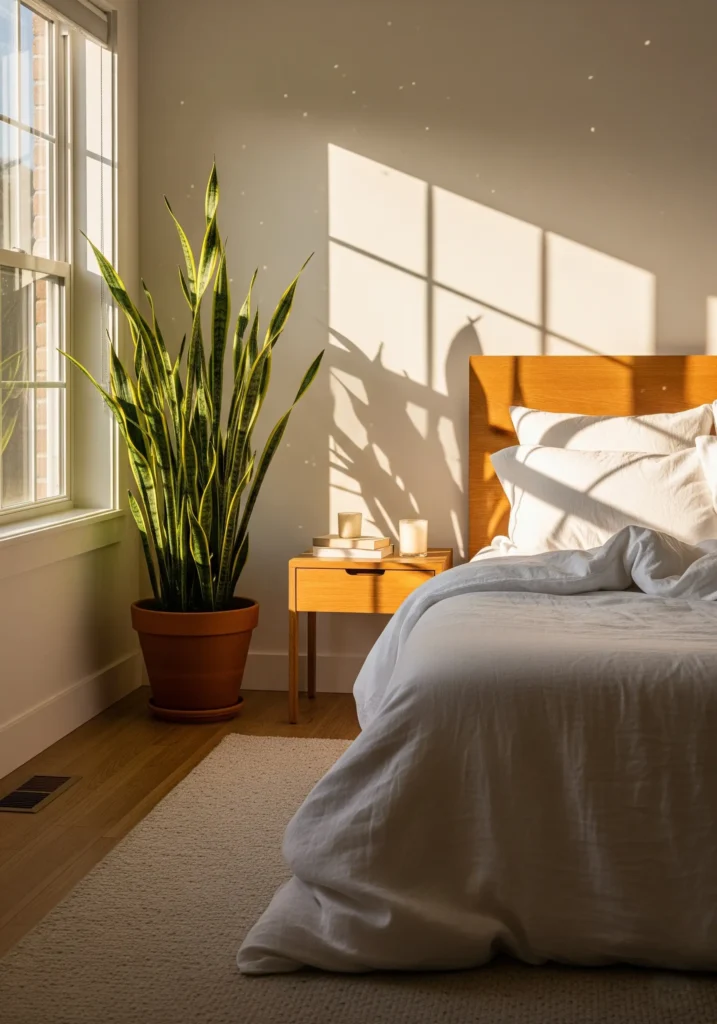
2. Aloe Vera
Aloe Vera is not just a beauty and skincare plant it’s also an excellent air purifier. It’s perfect for your bedroom because it’s low maintenance and has healing properties.
Health Benefits:
- Removes airborne toxins like formaldehyde.
- The gel inside its leaves has soothing, anti-inflammatory properties for burns and cuts.
- Releases oxygen at night for better breathing.
Care Tips:
- Light: Needs bright, indirect sunlight.
- Water: Every 3 weeks; avoid overwatering.
- Temperature: Keep in warm, dry environments.
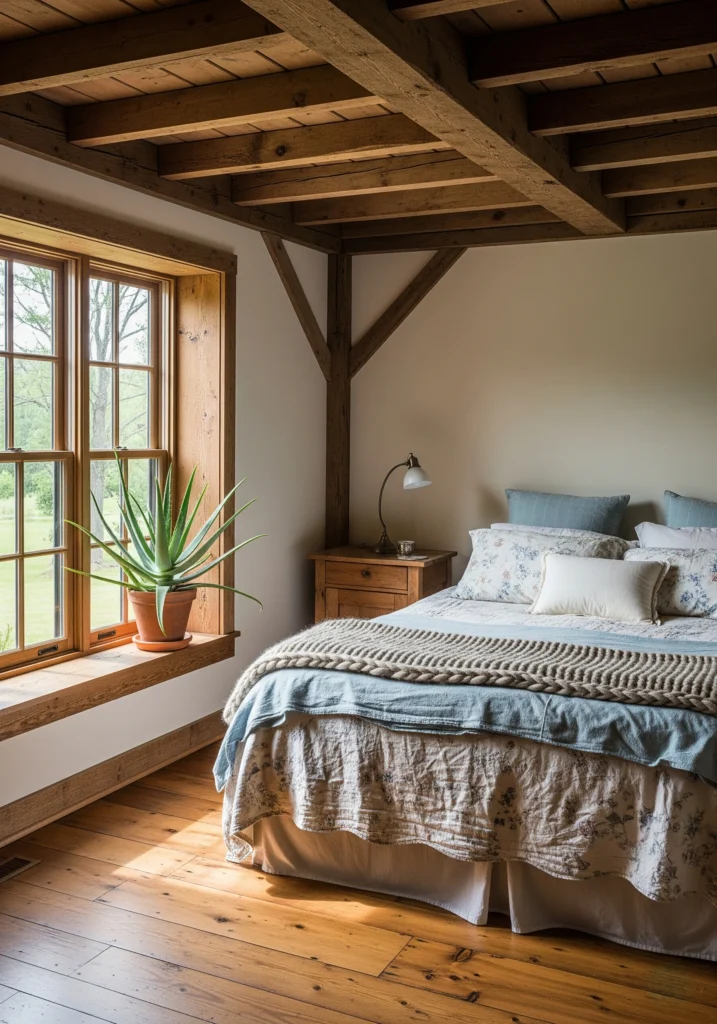
3. Lavender (Lavandula)
Known for its calming fragrance, lavender is one of the best bedroom plants for improving sleep quality.
Health Benefits:
- Natural scent helps reduce anxiety and stress.
- Promotes deeper and more restful sleep.
- May lower heart rate and blood pressure.
Care Tips:
- Light: Needs direct sunlight for a few hours daily.
- Water: Light watering once the soil feels dry.
- Temperature: Prefers cooler nights and warmer days.
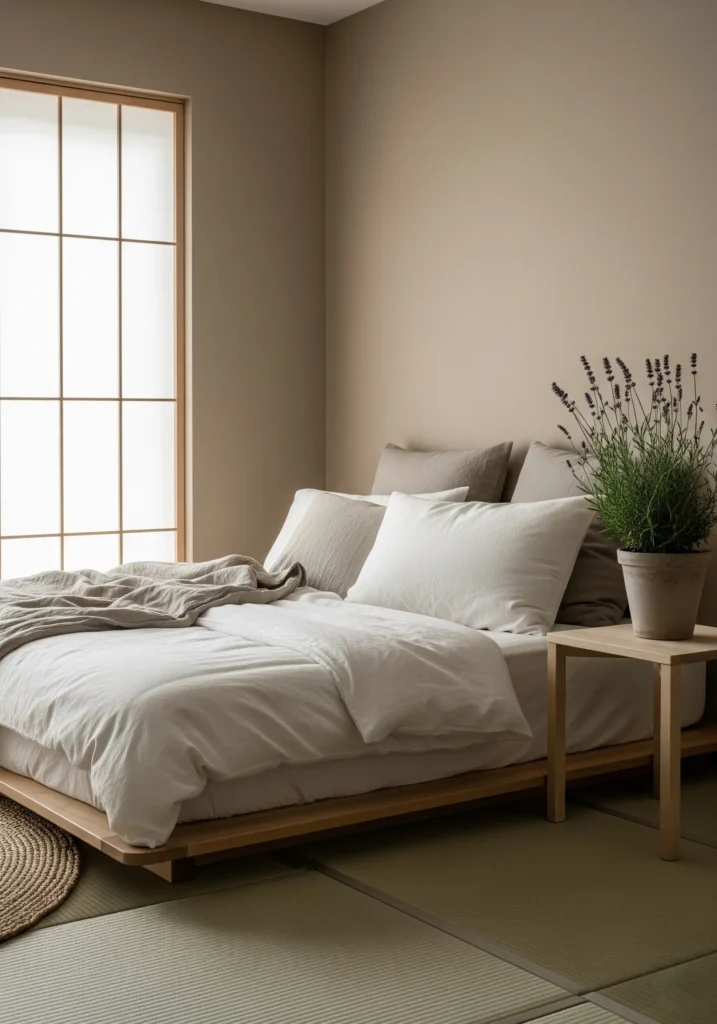
4. Peace Lily (Spathiphyllum)
A beautiful, elegant plant with white blooms that is famous for its air-purifying qualities.
Health Benefits:
- Removes mold spores from the air great for allergy sufferers.
- Improves humidity levels, reducing dry skin and respiratory issues.
- Filters harmful chemicals like ammonia and benzene.
Care Tips:
- Light: Low to medium, indirect light.
- Water: Once a week; keep soil moist but not soggy.
- Temperature: Prefers warm, humid environments.
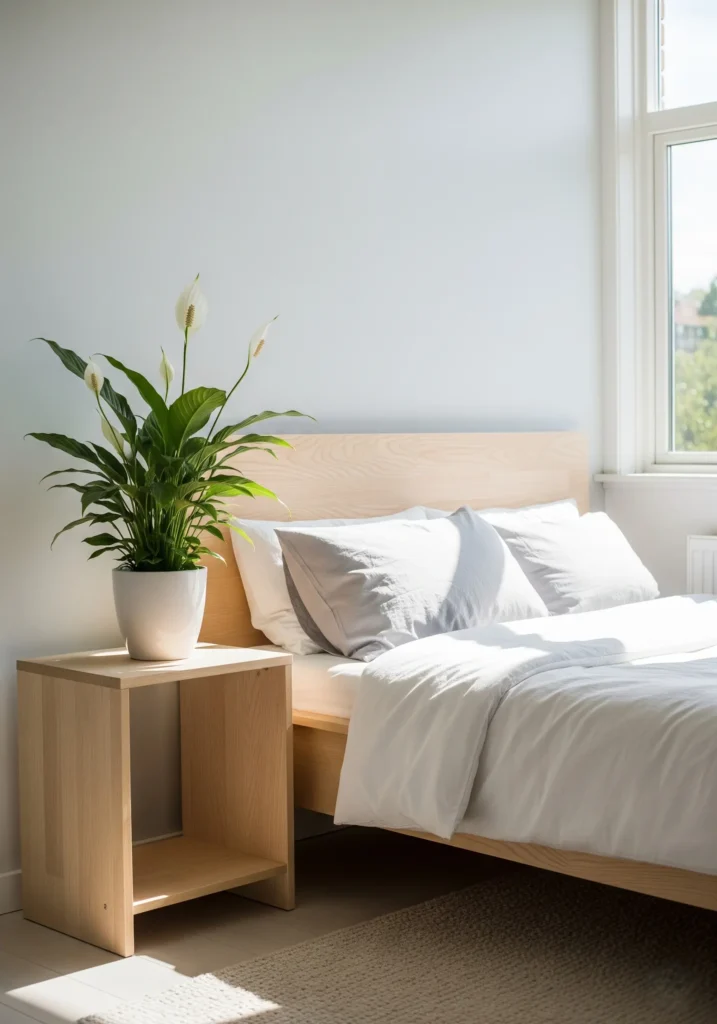
5. English Ivy (Hedera helix)
English Ivy is a trailing vine that’s especially good for removing mold and airborne fecal particles making it great for respiratory health.
Health Benefits:
- Improves symptoms of asthma and allergies.
- Cleans airborne mold spores.
- Can be grown in hanging baskets to save space.
Care Tips:
- Light: Bright, indirect light.
- Water: Keep soil moist, but avoid waterlogging.
- Temperature: Likes cooler rooms (10–20°C / 50–68°F).
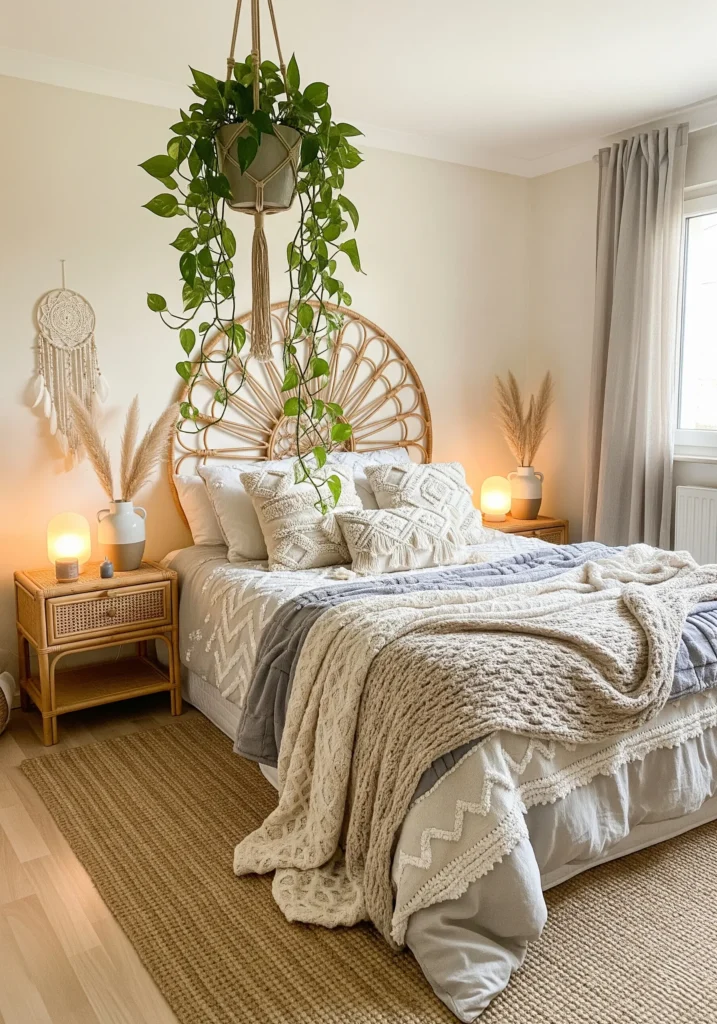
6. Jasmine (Jasminum)
Jasmine is a fragrant flowering plant known for its stress-reducing aroma and sleep-enhancing benefits.
Health Benefits:
- Promotes relaxation and reduces anxiety.
- Improves sleep quality through soothing fragrance.
- Adds a touch of elegance to your bedroom décor.
Care Tips:
- Light: Prefers bright, indirect sunlight.
- Water: Keep soil slightly moist.
- Temperature: Likes moderate indoor temperatures.
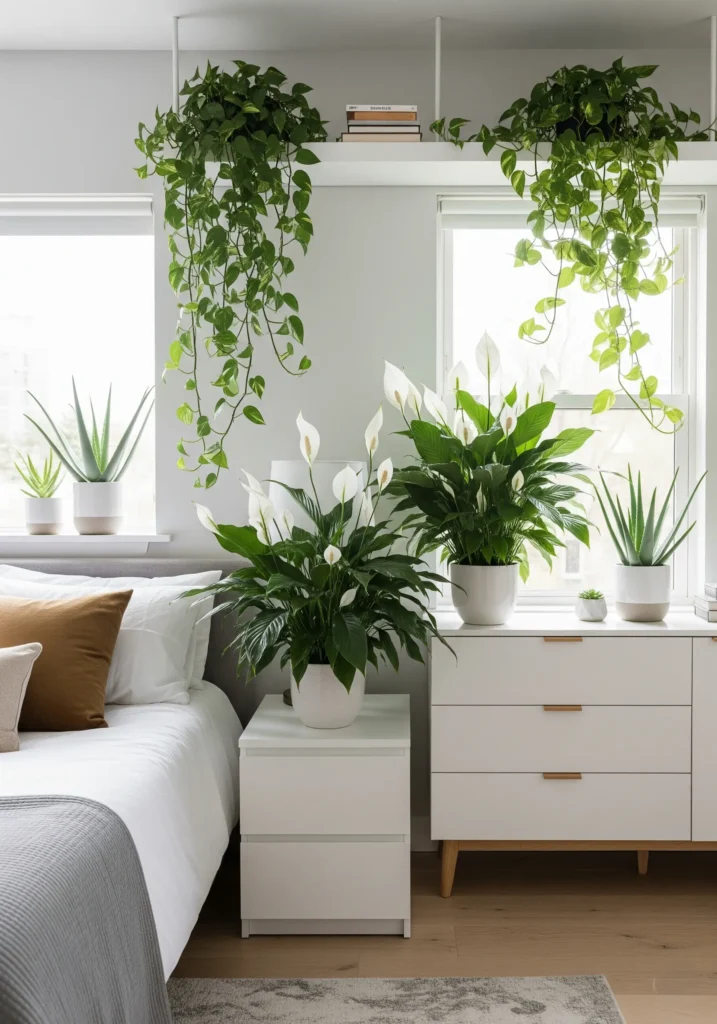
How to Arrange Bedroom Plants for Maximum Health Benefits
1. Place Oxygen-Producing Plants Near Your Bed
Snake plants and aloe vera can be placed on bedside tables to improve air quality during sleep.
2. Use Hanging Planters for Space Saving
English Ivy and trailing plants can be hung near windows for light exposure and to keep them out of reach from pets.
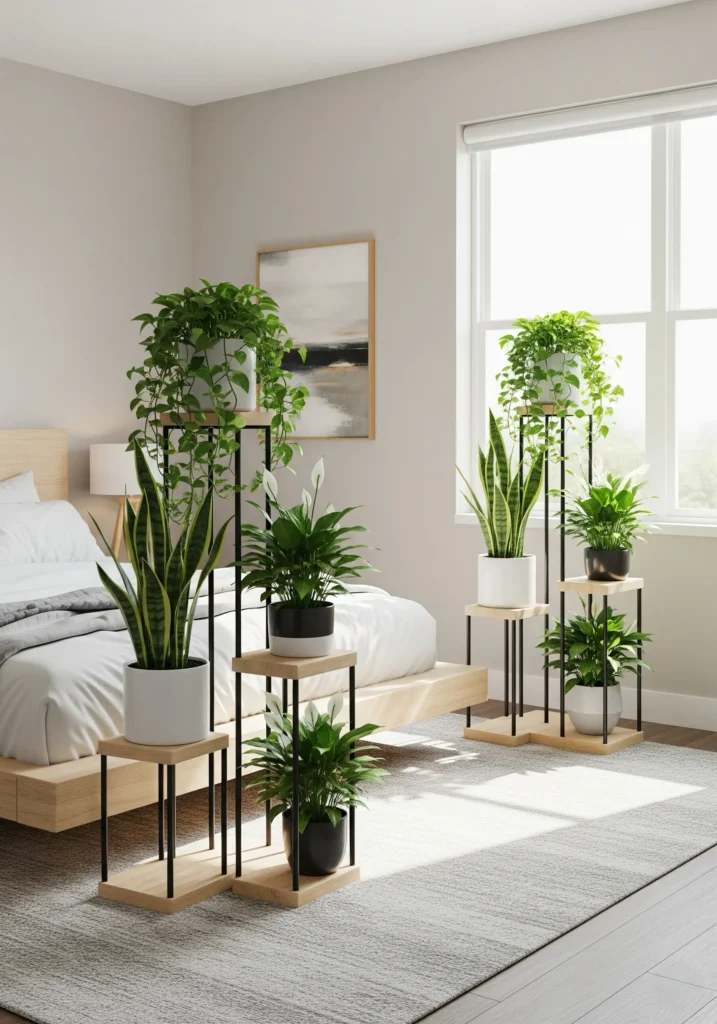
3. Group Plants for Higher Humidity
Peace lilies and ferns can be grouped together to increase local humidity—great for dry climates.
4. Combine Aesthetic and Function
Mix leafy greens with flowering plants like lavender or jasmine to get both visual appeal and health benefits.
Tips for Caring for Bedroom Plants
- Avoid Overwatering – This is the most common reason indoor plants die.
- Ensure Good Drainage – Always use pots with drainage holes.
- Rotate Plants – This ensures even growth as all sides get light.
- Dust the Leaves – Dust can block sunlight and slow photosynthesis.
- Monitor Light Levels – Bedrooms often have less light, so choose low-light tolerant plants.
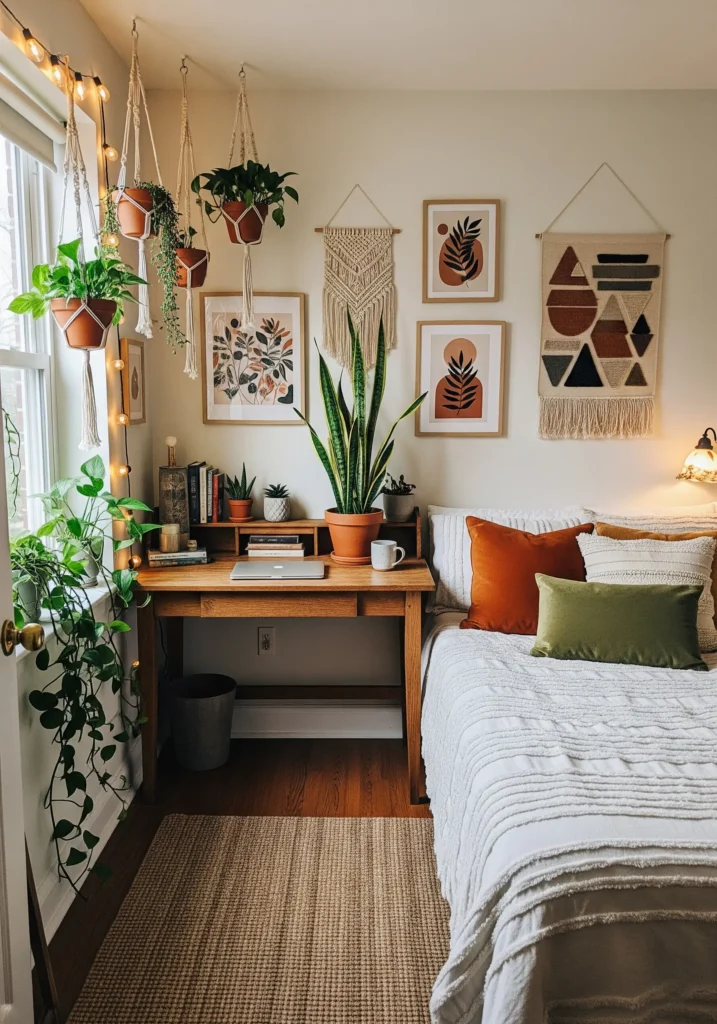
Common Mistakes to Avoid
- Placing Plants in Complete Darkness – Even low-light plants need some sunlight.
- Ignoring Humidity Needs – Some plants, like peace lilies, prefer more humid air.
- Using Tap Water with High Chlorine – Let water sit for 24 hours before watering to let chlorine evaporate.
Final Thoughts
Adding the 6 best bedroom plants for your health is an easy way to make your sleeping environment healthier, more relaxing, and more beautiful. From air-purifying plants to fragrant lavender and jasmine, these plants provide numerous benefits, from reducing stress to improving air quality and helping you sleep better.
Start small by adding one or two plants, and gradually create your personal indoor jungle. You’ll not only enjoy a cozier bedroom but also reap long-term health benefits.






